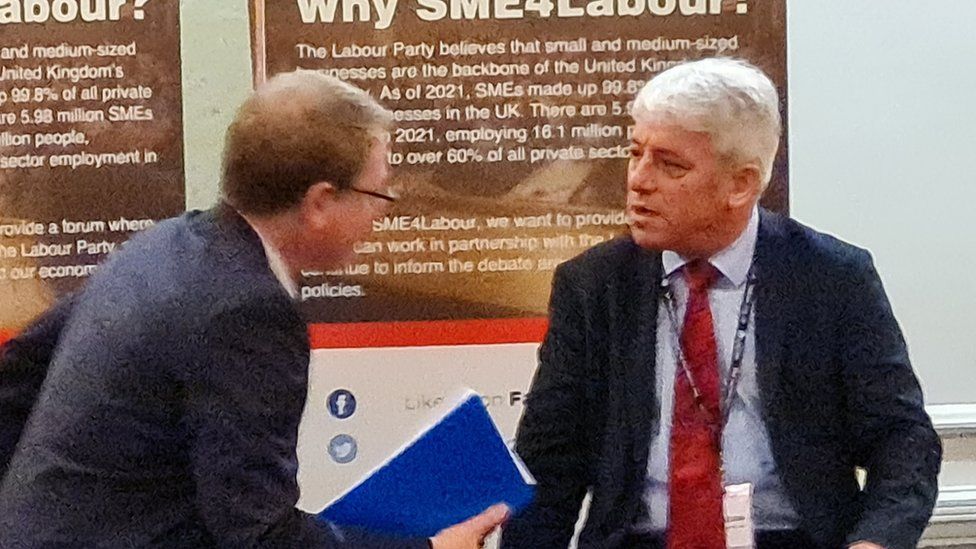Labour conference: Comrade Bercow makes debut
- Published

Former speaker John Bercow made his first appearance at Labour party conference
John Bercow has appealed for his new party's forgiveness as he addressed his "comrades" at Labour party conference.
The ex-Commons Speaker is attending the event after joining the party in June.
He asked a crowd if he was permitted to call them "comrades" - leading to surprised, but friendly, laughter over his use of the left wing term.
And he asked the audience to forgive him for his Tory beginnings, hoping they believed in "the Rehabilitation of Offenders Act".
In the conversation with Guardian journalist Jonathan Freedland at a fringe event in Brighton, Mr Bercow discussed his upbringing, as well as his time in Parliament.
But he began talking about Labour's conference itself, calling the atmosphere "distinctly friendlier" than the Conservative equivalent.
"I would like, colleagues, or if I can be permitted to say, comrades... [that] I've always been a slow learner and a late developer, so don't hold my rather long-winded journey against me," he added.
'I hope I am now forgiven'
Mr Bercow became a Conservative MP in May 1997, and was elected Speaker in June 2009. He served as Speaker for 10 years, notably during the years in which Brexit debates dominated the House of Commons - and where he became well known for his cry of "order order".
John Bercow's most memorable moments as Speaker of the House
Later in the session, addressing his past as a member of the Monday Club - a right wing organisation aligned with the Conservatives until 2001 - he said he had been "misguided" as a teenager in joining them, and "inspired by the simplicity of an ideology... which has an answer to everything".
But he said he resigned from the group at the age of 21, describing it as "ghastly".
Mr Bercow added: "I was completely wrong and it was utterly shameful, and I should never have made those reckless and stupid and nasty, bigoted decisions.
"But all I will say to the members of the Labour Party... is that if you believe in the Rehabilitation of Offenders Act, as I resigned from the Monday club in February 1984, I hope I am now forgiven."
And in a speech littered with references to his "comrades", welcomed with a warm reception, he seemed to have achieved his repentance.